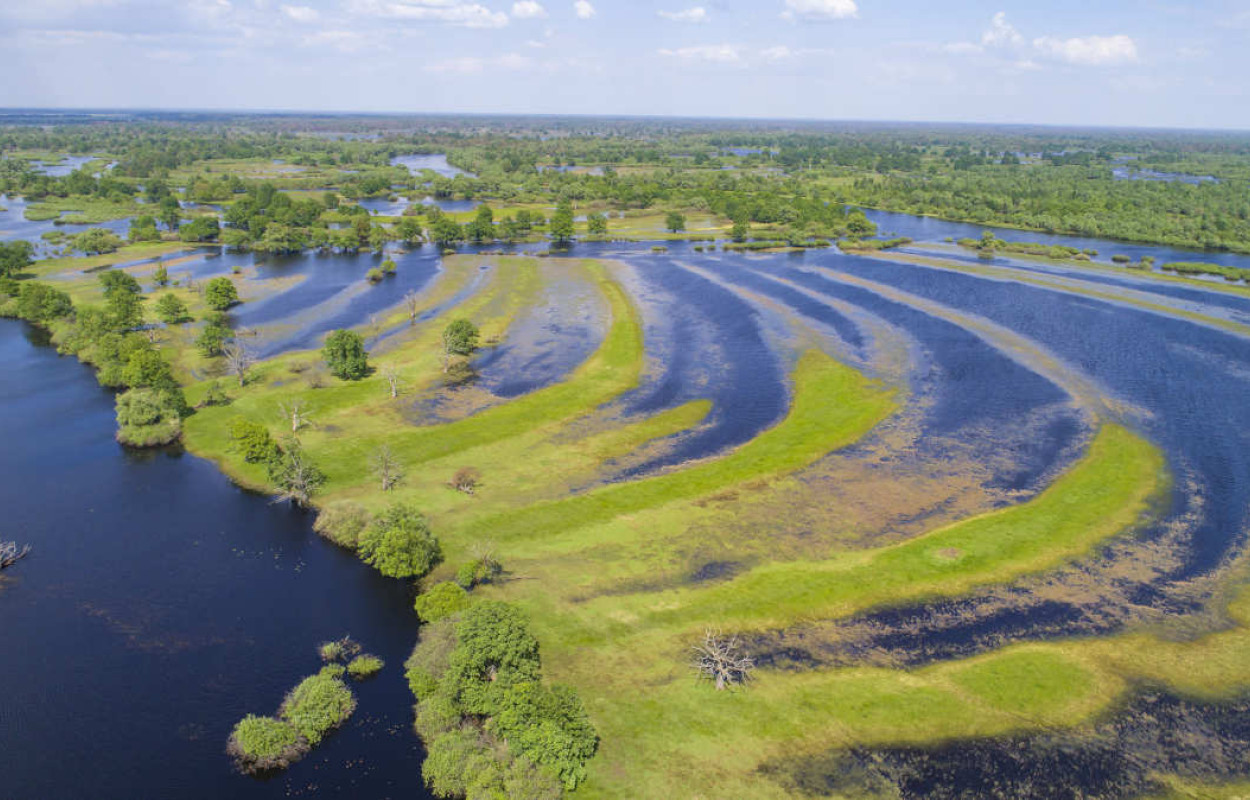
BTO participated in species research and monitoring underpinning a landscape restoration project in Belarus and Ukraine, aimed at protecting and restoring the wetland wilderness of Polesia.
- It was a large-scale project, aimed at protecting and restoring the wetland wilderness of Polesia.
- It was a collaborative project under the umbrella of the Endangered Landscapes and Seascapes Programme.
Areas of work
Acoustic monitoring
From April to September 2021 we deployed acoustic monitors throughout Polesia. These devices, record animal sounds from one hour before dusk to one hour after dawn. With these recordings we mapped areas of particularly high or unique biodiversity informing priority areas to focus conservation efforts in Polesia.
This work will benefit from current BTO work automating the identification of species in recordings. So far, we have almost finished a classifier for bats and we hope to develop them for birds and small mammals too.
Tagging Greater Spotted Eagles
Greater Spotted Eagles are one of Europe’s most endangered raptors. They rely on undisturbed wetland habitats, now scarce in Europe. Polesia still holds many of these crucial habitats that are a haven for breeding Greater Spotted Eagles and other biodiversity.
As part of the Polesia project, we have fitted GPS tags to Eagles to see how they use the landscape, while provisioning for their chicks, and to discover what factors might affect their breeding success. We are combining this with placing camera traps on nests in order to monitor the prey fed to chicks and how this impacts their development and survival.
Invertebrate Sampling
Restoration of wetland sites is an important part of the Polesia project. Peatland sites have been drained for agriculture, forestry or peat extraction, resulting in large carbon emissions and damage to the sensitive and unique ecosystems found in these wetlands. The project is restoring these sites by blocking drainage canals, allowing sites to hold more water and naturally regenerate.
We are monitoring the efficacy of this restoration by measuring water levels, but we also want to see how wildlife recovers. To do this we sampled invertebrate communities. Wetland insects are excellent indicators of ecosystem health as they respond quickly to environmental changes and are extremely diverse, allowing for subtle changes in community composition to be detected.
We monitored the insects at our restoration sites, comparable non-restored sites and near-natural areas. We used a modern DNA metabarcoding approach to identify these insects, allowing us to monitor many sites and process results quickly. Through our findings, we can identify which insects are most highly associated with natural sites and whether our restoration efforts are benefiting these insects.
Collaborative support
Using BTO’s expertise in monitoring and analysis we also helped our project partners survey large-mammal abundance and distribution throughout the project region. This helped provide vital evidence to protect the most important sites for threatened large mammals, such as wolves and lynx.
We are also helping formulate a conservation plan for Great Snipe in important breeding sites in Polesia. Great Snipe are threatened by hunting and habitat change.
Through GPS tracking and by monitoring breeding success we supported our partners, APB and USPB, in gathering the evidence to effectively lobby Ukrainian and Belarusian governments to better protect this vulnerable species.
Project Funding
The project “Polesia – Wilderness without borders” is part of the Endangered Landscapes and Seascapes Programme and was funded by Arcadia – a charitable fund of Lisbet Rausing and Peter Baldwin.
The project was coordinated by Frankfurt Zoological Society (FZS) and implemented in collaboration with APB-Birdlife Belarus, the Ukrainian Society for the Protection of Birds (USPB) and the British Trust for Ornithology (BTO).